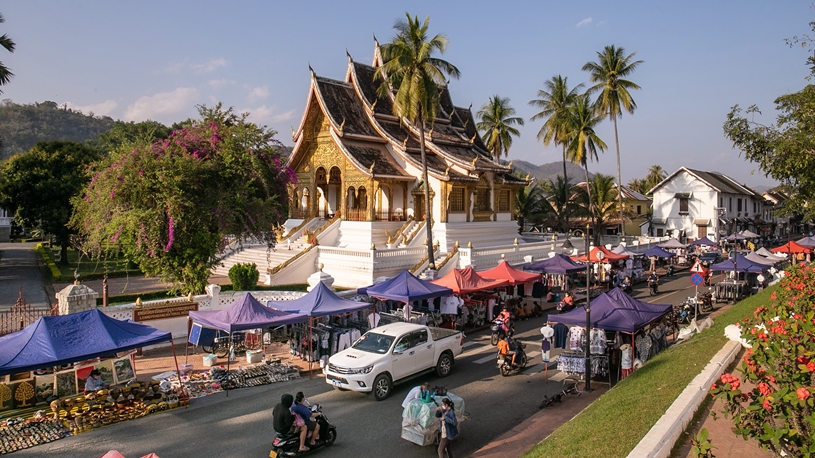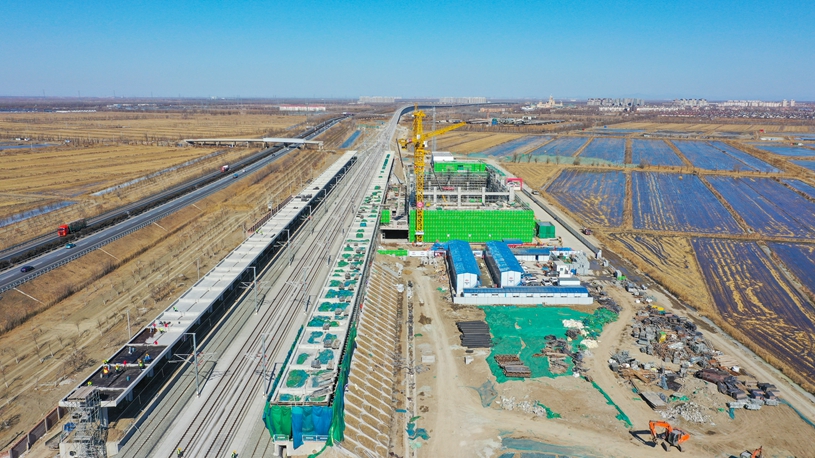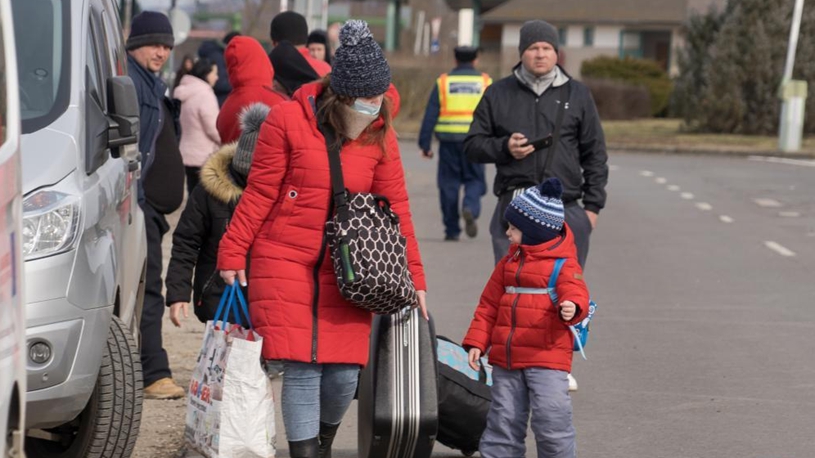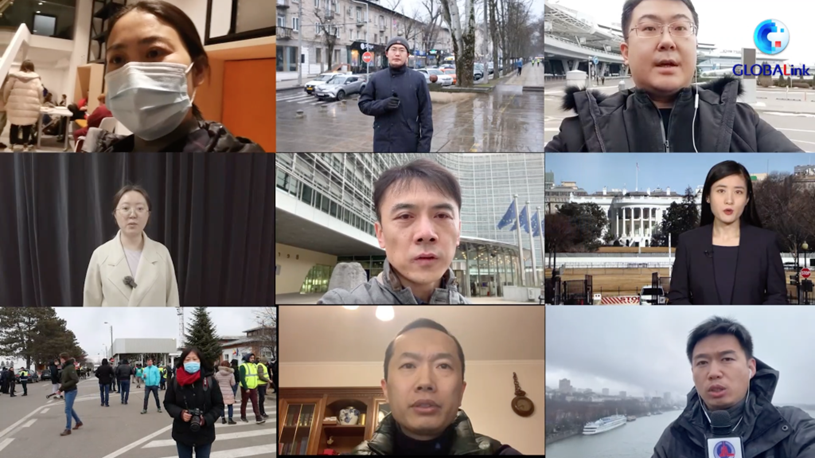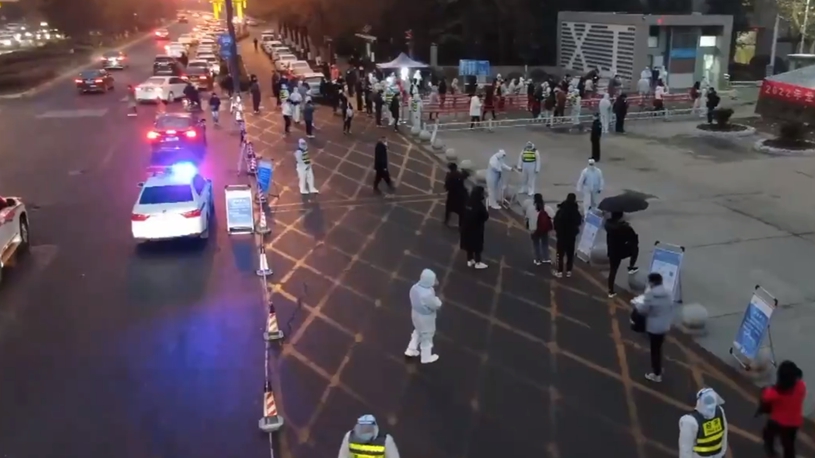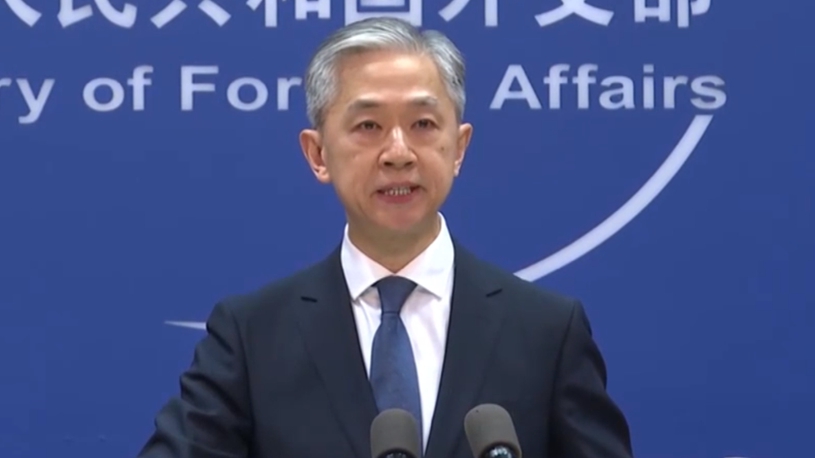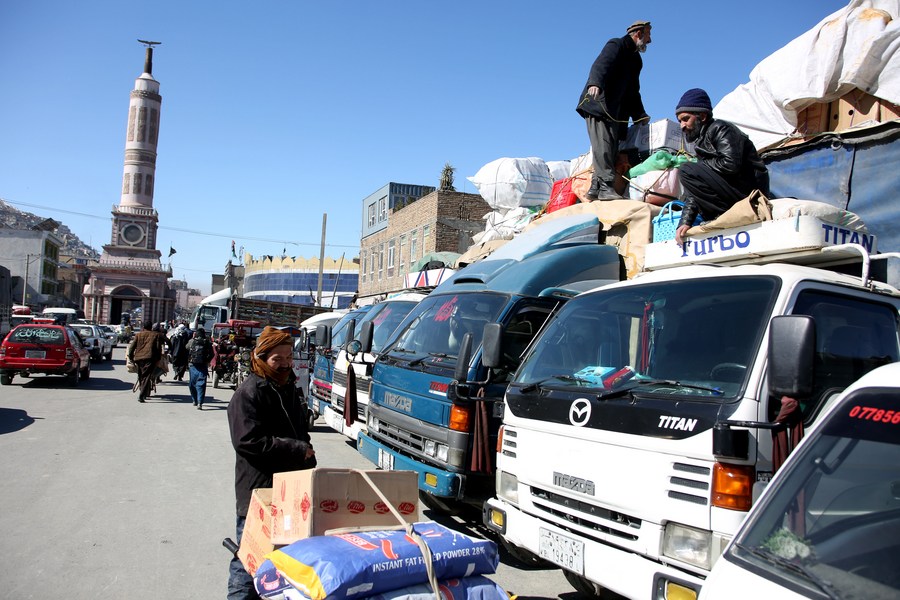
Afghan men wait for work in Kabul, capital of Afghanistan, Feb. 12, 2022. (Photo by Saifurahman Safi/Xinhua)
There remains an enduring distrust between the Taliban and much of the international community, and even the regional countries and neighbors, a top UN envoy said.
UNITED NATIONS, March 2 (Xinhua) -- The international community has no choice but to deal with the Taliban in Afghanistan, said Deborah Lyons, the top UN envoy for the war-torn country, on Wednesday.
"Let me make clear that we do not believe that we can truly assist the Afghan people without working with the de facto authorities (of the Taliban)," she told the Security Council in a briefing. "This must be difficult for some to accept. But it is essential."
There remains an enduring distrust between the Taliban and much of the international community, and even the regional countries and neighbors, said Lyons, the UN secretary-general's special representative and head of the UN Assistance Mission in Afghanistan (UNAMA).
"The Taliban feel misunderstood and complain to us that our reports do not reflect the reality as they see it. They tell me that we underappreciate their achievements and that we exaggerate the problems -- problems which they acknowledge and which they claim they are trying to solve," she said.
Above all, the Taliban believe that they should receive greater acknowledgment for the security that prevails in Afghanistan. In the six months since the Taliban takeover on Aug. 15, 2021, there has been a 78 percent decline in civilian casualties as a result of the reduction of the conflict. They also note that their amnesty declaration has been honored for the most part and that violations are not state-sanctioned and that those violators will be punished, she said.
The Taliban also highlight progress on the economic front, including strong revenues despite decreased economic activity, reduced government corruption, and a budget that does not require donor resources. They also point to public universities being reopened and their desire to see Afghans, all boys and all girls, educated to a high international standard, she said.
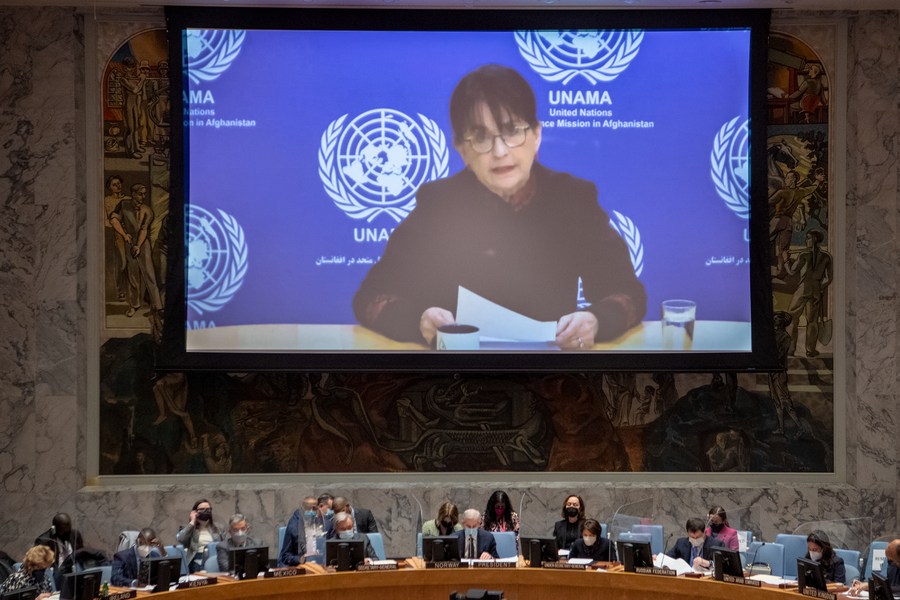
Deborah Lyons (on the screen), UN secretary-general's special representative for Afghanistan, briefs the Security Council meeting on the situation in Afghanistan at the UN headquarters in New York, Jan. 26, 2022. (Eskinder Debebe/UN Photo/Handout via Xinhua)
On Tuesday, on the anniversary of the signing of the Doha Agreement between the Taliban and the United States, the Taliban reiterated their declared commitment to ensure that Afghanistan does not become a threat to any country, and their desire for good relations with all states and international organizations, she noted.
"This complements another important point made to me recently by the de facto foreign minister, namely that their diplomatic policy is to ensure that Afghanistan also does not become an arena of competition between other powers or countries," said Lyons.
Most importantly, they complain that these positive achievements are being undermined by an undeclared economic war against them by the international community that has greatly affected and resulted in choking of the economy and they know also exacerbating the suffering of the population, she said.
"This clash of perspectives forms the basis of a serious gap, gulf and distrust that must be addressed. And that is what UNAMA has been doing these past six months and what we hope you will be giving us the mandate to continue to do in the year ahead -- to bridge this gulf for the betterment of all Afghans," she said, referring to the planned renewal of UNAMA's mandate later this month.
In response to the complaints, UNAMA has articulated to the Taliban the concerns of the international community and most notably, the instructions from the Security Council, said Lyons.
"As UNAMA, we must continue to report on what we see, even as we continue to build an understanding and the working relationship with the de facto authorities. We are concerned by restrictions on women and girls' fundamental rights, on extrajudicial killings, on enforced disappearances, on arbitrary detention, on respect for minorities, and on freedoms of assembly and expression," she said.
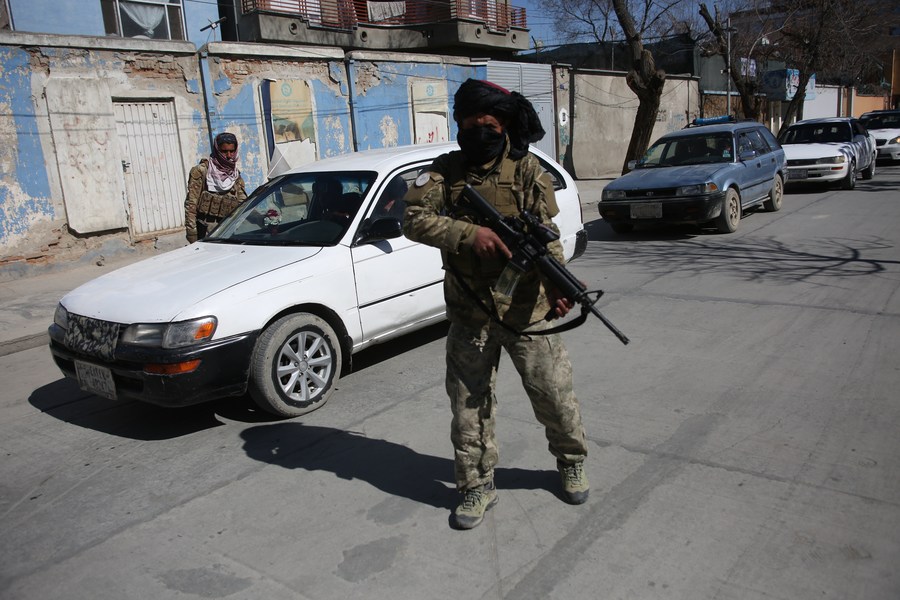
Afghan security force members stand at a security checkpoint during a clearance operation in Kabul, Afghanistan, Feb. 26, 2022. (Photo by Saifurahman Safi/Xinhua)
UNAMA's advocacy and collaboration with the Taliban have produced results, citing the release of the disappeared women protesters and their family members.
Afghanistan presents a complicated situation, with positive and negative trends occurring simultaneously. UNAMA has so far been able to address many issues through constructive engagement and cooperation with the Taliban, both on the humanitarian delivery as well as on some of the sensitive issues, said Lyons. "We believe, as a political mission, that we can do much more to work with the de facto authorities on the main issues facing Afghan society."
UNAMA's purpose is ultimately to see Afghanistan, one of the original members of the United Nations, rejoin the organization as a member in good standing, benefit from the resources of the international community, and contribute to the global discussion on issues of common concern, she said.
"Naturally, working with the de facto authorities in no way means condoning everything that it does. But this will give us the opportunity, on behalf of all of you and the rest of the international community, to help shape a future for the people of Afghanistan, free of conflict and where they can peacefully pursue their quest for prosperity, participation, and respect for their rights," she said.
The Security Council is scheduled to vote on the renewal of UNAMA's mandate on March 17. Lyons called on the council to design a proper mandate to fit the purpose of UNAMA.
"The mandate you adopt for UNAMA will send a signal from the international community to the Afghan people that they have not been forgotten, and to the Taliban de facto authorities that the world does not desire future conflict in Afghanistan but that they will need to recognize basic standards of global citizenship in order to be accepted by the international community," she said.
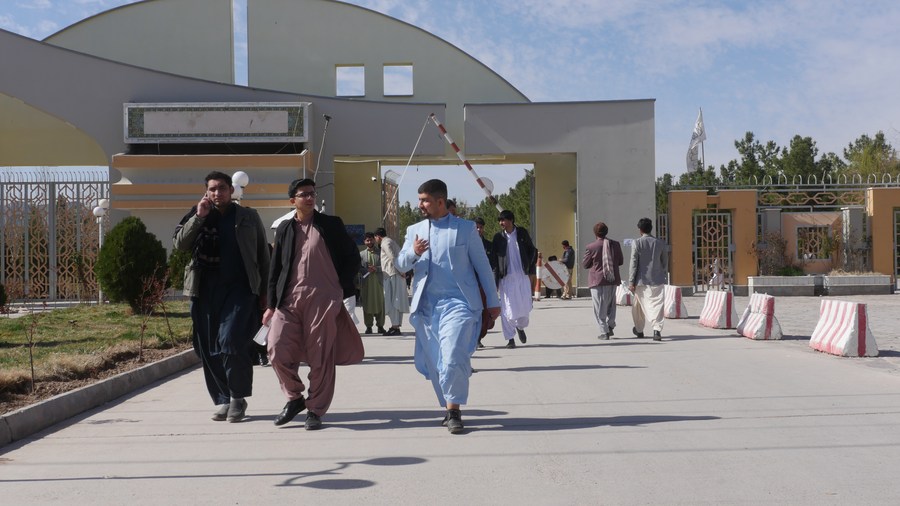
Afghan students are seen in an university reopened in Herat city, Herat province, Afghanistan, Feb. 26, 2022. (Photo by Mashal/Xinhua)
If UNAMA is appropriately equipped and empowered by the Security Council, a busy but worthwhile agenda awaits the UN mission: addressing the economic crisis; working with the Taliban to ensure education for all girls and boys to help the country move forward; promoting human rights; engaging in a discussion about political inclusion to ensure the concerns of all Afghans are reflected in decision-making; supporting a structured policy dialogue with the Taliban that supports the process of securing domestic legitimacy and addresses the key international concerns of narcotics, terrorism and regional security, she said.
These elements combined will allow UNAMA to work with the Taliban and other Afghans and the Security Council to establish a pathway for the Afghan state to rejoin the larger international community, said Lyons. "Your deliberations and decisions on the mandate in the coming weeks have immense consequences. They will resonate across the region and the world, but more importantly, they will be felt in every village in Afghanistan."
"I would be remiss if I did not remind you that you are about to approach a critical moment in your relationship with Afghanistan. You have the opportunity in the next two weeks to develop and design a much-needed, relevant and solid political mission that will help to build back the country, that will help to build the capacity, that will help to attract back the all-important development dollars and will avoid the constant collapse of Afghanistan into a humanitarian crisis," said Lyons. "I implore you to give us a strong, solid mandate that will be required. Without it, I fear for the future." ■




